IIT Grad Invents Patented Fabric That Kills Viruses, Blocks UV Rays & Is Eco-Friendly Too
IIT-Madras alumni, Deepthi Nathala's fabric ‘Hecoll’—abbreviation for ‘Healthy Cover For All’—claims to block 99% UV rays, filter 95% pollution and inhibits viruses and bacteria upon contact.
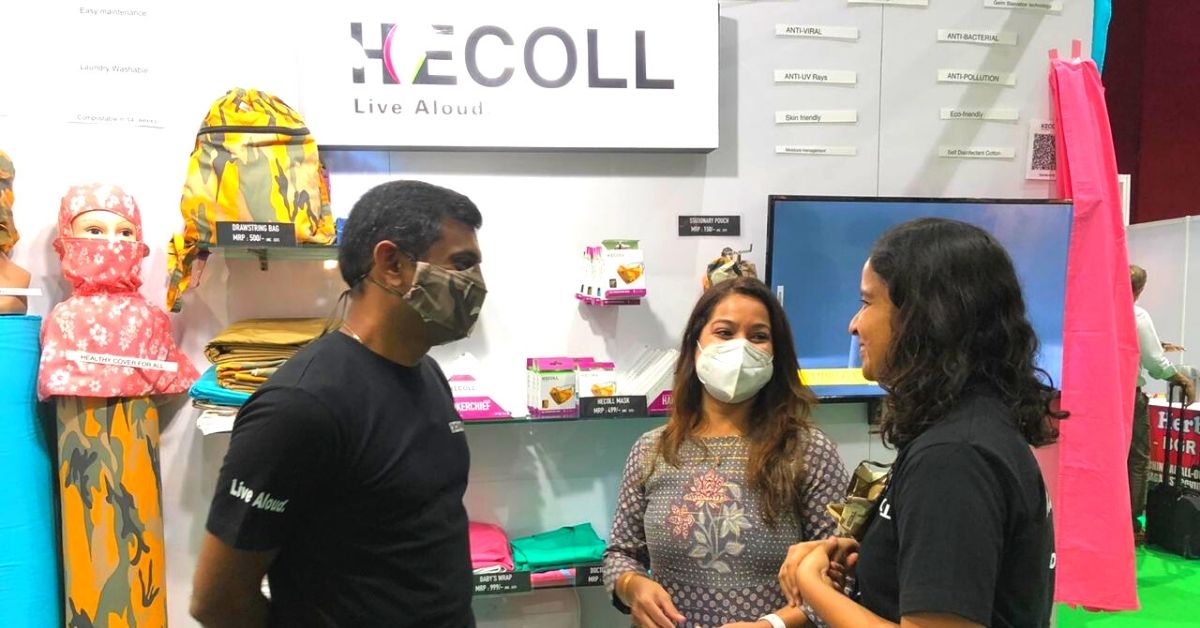
After working for a decade in the Middle East, USA and South America, Deepthi Nathala came back home to Hyderabad in December 2018. Upon arrival, however, she realised that her body could not adjust to the environment. Suffering a mild headache and skin irritation during regular drives in the city, Deepthi realised she needed some protection from the burning rays of the sun, excess dust, air pollution and germs. (Image above of Deepthi Nathala, the innovator behind Hecoll fabric, who is standing on the extreme right with potential customers.)
While travelling, she saw women wrap dupattas (long scarves) and handkerchiefs around their head and mouth to protect themselves. With some free time on her hands, this nanotechnologist who graduated from the Indian Institute of Technology-Madras (IIT-M), decided to conduct some tests on dupattas and handkerchiefs sold in the market.
She found that the material used to make these items only offered a dismal 10% to 15% protection from pollution and UV rays. Existing solutions like a hand sanitiser, N95 mask and sunscreen also generate a lot of plastic waste. In addition, used N95 masks should be treated as biomedical waste. You can’t throw them into any ordinary dustbin. Sunscreens, meanwhile, are effective only for a couple of hours upon application.
After months of research, she developed a fabric called ‘Hecoll’—abbreviation for ‘Healthy Cover For All’—which blocks 99% UV rays, filters 95% pollution and inhibits viruses and bacteria upon contact—under her venture, Dibbu Solutions Private Ltd. With eco-friendly cotton at its base, she figured out a method to bind the fabric with ‘bodyguard molecules’, that could filter particulate matter, block UV rays and kill viruses/bacteria upon contact.
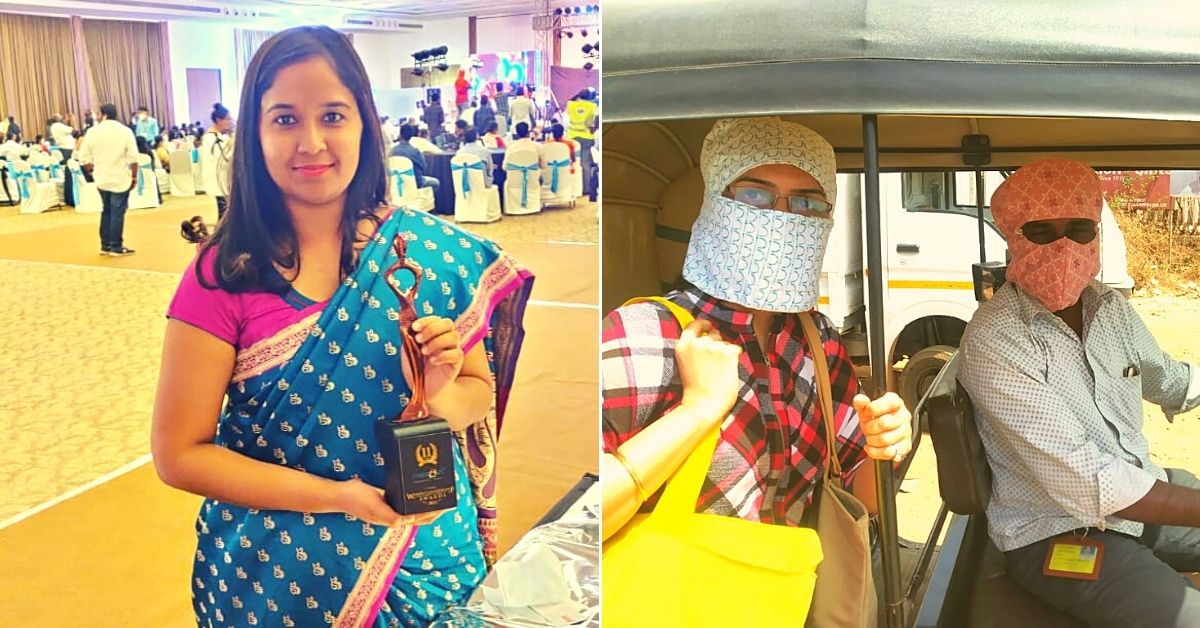
Cotton as a fabric alone cannot fight off these viruses or block out UV rays but there are cavities in the fabric that can be filled up with ‘bodyguard molecules’.
These bodyguard molecules come in three forms:
a) Extracted from plants like turmeric and neem, these are nonpolar molecules that have germ-killing abilities and UV ray absorption capacities.
b) Metal components like nanosilver and nano copper also possess germ-killing properties and UV ray absorption capacity. After all, we store water in copper vessels and use copper instruments for treating wounds, among other medical uses.
c) Going beyond plant and metal-based ‘bodyguard molecules’, one can even employ certain chemical compositions using nanotechnology to fill up those cavities.
“As part of our research and development, we explored all three options. If it weren’t for the pandemic, we would have carried on with our intensive research parallelly for another year or two at least. In our first production cycle, we developed a special kind of cotton fabric in two types—nano copper and a [not-to-be-revealed] nanochemical composition,” says Deepthi, founder of Dibbu Solutions, speaking to The Better India.
The fabric can protect people from various kinds of viruses like H1N1 and Covid-19 and bacteria like salmonella and E.coli, respectively. It also protects from pollen and filters out polluting gasses like sulphur dioxide and nitrogen dioxide. Meanwhile, it also blocks 99% of the UV-A and UV-B rays and filters out 95% of air pollutants.
Certifications for the same have come from agencies like the National Accreditation Board for Testing and Calibration Laboratories (NABL), Bombay Textile Research Association (BTRA), South India Textile Research Association (SITRA), Nelson Labs and Bureau Veritas, amongst others.
Her venture uses this fabric to make antiviral face masks, headgear for children and adults, baby wraps for newborns, fanny bags, caps, hats, and items to prevent hospital acquired infections like patient gowns, doctor coats, bed sheet linen, surgical gowns, etc. Consumers can find these items on Amazon, Flipkart and on their own B2C channel (website). The venture was also empanelled by several State governments for their effective face masks.
Another fascinating aspect about the Hecoll fabric is that it’s eco-friendly. One of the biggest concerns emerging out of the recent pandemic is the indiscriminate use of surgical masks, N95 masks and PPEs resulting in a biomedical waste surge. Unlike items that are hard to dispose of, you can take any Hecoll product, cut it into small pieces and mix it with your kitchen organic waste. Within 14 weeks, the Hecoll fabric will completely decompose.
“During the first wave, our antiviral face mask attracted a lot of demand. However, in the past few months, demand for our patient gowns have really gone up from different states. But we haven’t really done anything in terms of marketing to promote ourselves,” she says.
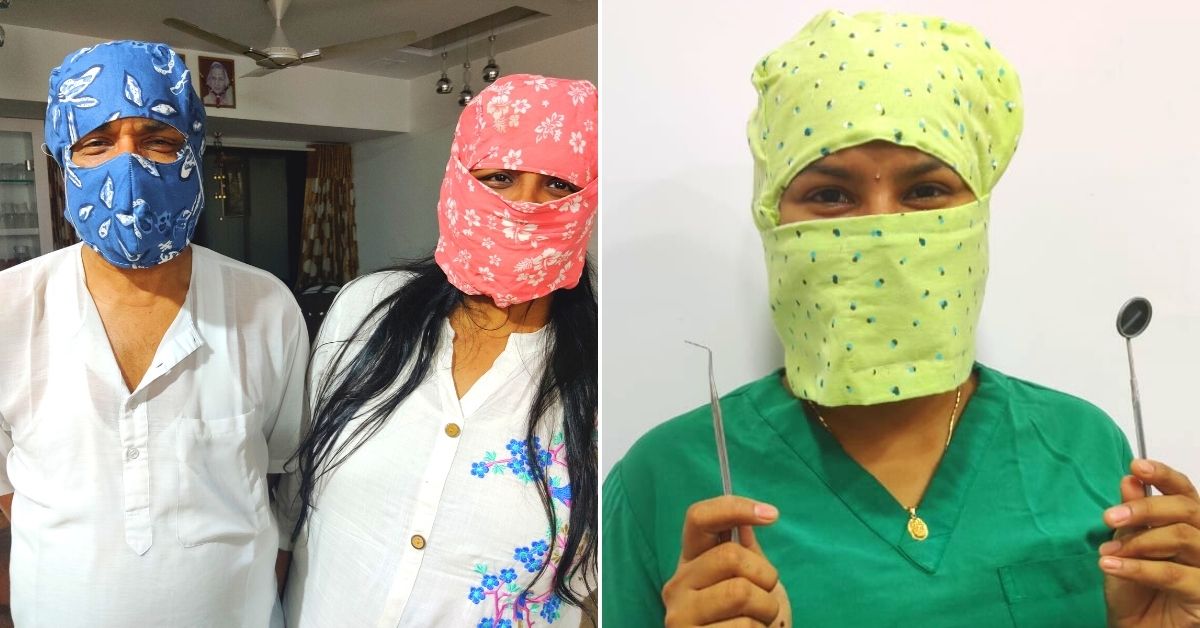
Going Through Life’s Challenges
Before launching Dibbu Solutions in July 2019, Deepthi endured her fair share of obstacles. Losing her mother at the tender age of 8, she grew up in an environment marked by what she calls “unhealthy competition and limited resources”.
Although she successfully got into IIT-M, studied electrical engineering and worked for global MNCs spanning a decade from 2007 to 2017, there were difficult challenges along the way.
“My work and solo-travelling took me to 23 countries. During my travels, I interacted with a variety of communities, cultures, culinary styles and governments. However, whenever I would talk to people, they would more or less say the same thing about India — while many thoroughly enjoyed their visits, they also complained about the toll pollution, poor hygiene in public spaces, germs, heat and humidity would have on their health. While I would listen intently, little did I know that one day these interactions would also inspire my current venture,” she recalls.
Despite her extensive travels, she would often have to get back to a 9-6 job, which became more repetitive and mundane as the years rolled on. She recalls working in certain places only for the “few lakhs a month salary deposited into my bank account”. There was no passion or purpose behind working for global MNCs beyond a certain point.
Deepthi finally came back to Hyderabad in December 2018 and immediately began working on her vision for a product that would address growing air pollution, heat and the health problems associated with them in Indian cities. Before she incorporated Dibbu Solutions in July 2019, she conducted a lot of research and sought validation from multiple sources.
From conducting multiple surveys about the feasibility of a headgear made of biodegradable material, figuring out techniques to develop Hecoll to seeking advice from her professional mentors abroad and professors at IIT-Madras and Anna University, she did the work.
“It also requires a lot of mental fortitude to filter out unsolicited comments and criticism from the community and relatives around you, since I’m a woman starting my own venture. There is a lot of extra noise that comes with being a female entrepreneur in India,” she adds.
Nonetheless, it didn’t take long for her business to pick up. Although they had never intended to make antiviral face masks initially, they received a request from the Central government to stitch masks. The venture began stitching masks but gradually ventured into other products like patient gowns, amongst others, in the medical industry.
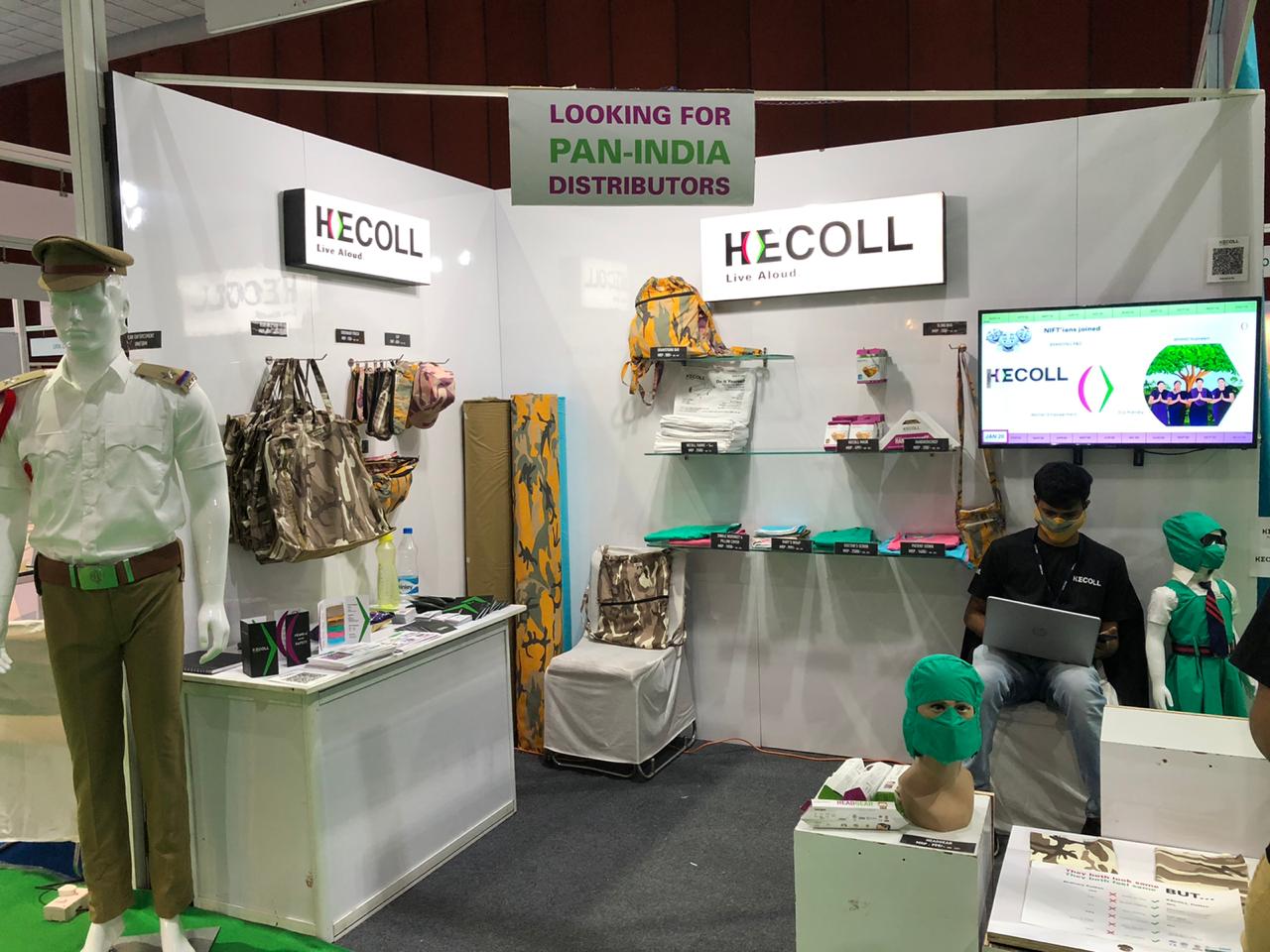
Employing Women & LGBTQ Community
Another fascinating element of Deepthi’s venture is her emphasis on employing cis-het women, particularly housewives, farm hands and housemaids and members of the LGBTQ community, especially transgenders. This decision came from the lack of diversity and representation she witnessed while studying engineering at IIT-Madras and working in the oil and gas sector in places like the Middle East and California.
“However, my work and travels have also helped me interact with people from the LGBTQ community, who occupy influential and respected positions outside India. Through my research and experience, I came to understand the hardships they went through, particularly in India. If members of these communities can thrive in other countries, why can’t they be given the space to do so here? Meanwhile, I have also observed how women who don’t earn or generate an income as much as their husbands suffer mental abuse at home. I wanted to change that and create opportunities for them,” she claims.
Another interesting facet of her venture is an emphasis on employee well-being. Besides training in stitching, modules for work from home, quality testing with market professionals and conflict resolution assessments, there is a major emphasis on mental health.
“Parallelly, we put them through a lot of assessments regarding mental health, which they initially resisted. They would say, ‘Why are you asking me if I am happy, content or not, when my parents or husband have never asked me this’. We have worked out these assessments with psychologists, psychiatrists and spiritual counsellors from a variety of organisations. In addition to competence, we check on their mental health, physical health and their conflict resolution and stress management capabilities, etc. If they are very far from the standards expected, we don’t employ them any further because this is a startup with limited resources. But if they are off by about 40% from the standards expected, we arrange modules and sessions to help them improve. The process of setting up these systems was hard. It challenged my mental health as well, but now I’m very confident in our workers,” she claims.
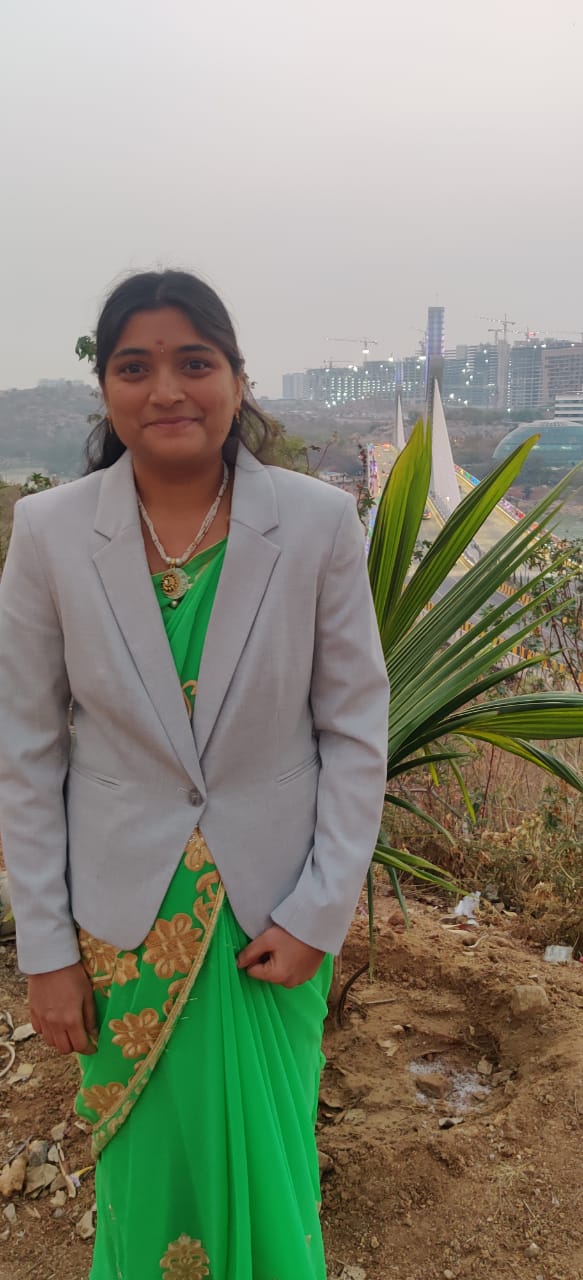
Although she had about 140 employees across 3 states on her payroll, the second wave has affected operations, and as a result, she has pulled back her operations to Hyderabad only.
The challenge before Deepthi and her team is scaling up operations and obtaining a genuine foothold in the Indian market, particularly since she’s a first generation entrepreneur.
“Finding co-founders to lessen the burden of establishing a venture like ours was a challenge. But we have brought on board a co-founder who will oversee design and strategy, and another to oversee business-to-customer (B2C) operations. We are currently being incubated by the Telangana State government. Long term, our success will come from exports since markets in Europe, US and the Middle East are more quality-sensitive than price-sensitive. Meanwhile, in about three or four months, we will be ready to raise funding from venture capitalists as well. Thus far, we are a bootstrapped venture,” she says.
(Edited by Yoshita Rao)
Like this story? Or have something to share? Write to us: [email protected], or connect with us on Facebook and Twitter.
If you found our stories insightful, informative, or even just enjoyable, we invite you to consider making a voluntary payment to support the work we do at The Better India. Your contribution helps us continue producing quality content that educates, inspires, and drives positive change.
Choose one of the payment options below for your contribution-
By paying for the stories you value, you directly contribute to sustaining our efforts focused on making a difference in the world. Together, let’s ensure that impactful stories continue to be told and shared, enriching lives and communities alike.
Thank you for your support. Here are some frequently asked questions you might find helpful to know why you are contributing?


This story made me
-
97
-
121
-
89
-
167











